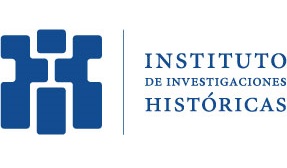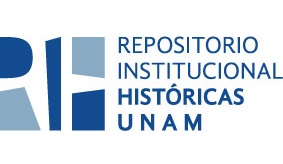Consulte el registro sencillo del ítem
De la crónica a la historia: el discurso historiográfico y la percepción del pasado en el mundo hispánico (S. XIII-XVI)
| dc.contributor.author | Ríos Saloma, Martín Federico |
| dc.coverage.temporal | Siglo XIII-XVI |
| dc.date.accessioned | 09/07/2024 01:14 |
| dc.date.available | 09/07/2024 01:14 |
| dc.date.issued | 2022 |
| dc.identifier.issn | 1983-7801 |
| dc.identifier.uri | http://hdl.handle.net/20.500.12525/3175 |
| dc.description.abstract | In this paper it’s analyze the semantic change of the word “history” operated at the end of the 16th century in the History of Spain by Juan de Mariana thanks to which the word would no longer have the meaning of a story about the events of the present but, on the contrary, of the events of the past. In a long-term perspective, the thesis is raised that throughout the fourteenth, fifteenth and sixteenth centuries, Castilian chroniclers in the service of the Crown used the term chronicle to underline the fact that they were in charge of recording the events of their times and that when Mariana recovered the term history, she did so with a new meaning closely linked to a context marked by profound political, cultural and historiographical changes in the Hispanic Monarchy that implied a new order of time and a new relationship with the past |
| dc.description.abstract | En el presente trabajo se analiza el cambio semántico de la palabra historia operado a fines del siglo XVI en la Historia de España de Juan de Mariana gracias al cual dicho vocablo no tendría ya el sentido de relato sobre los hechos del presente sino, por el contrario, de los sucesos del pasado. En una perspectiva de larga duración, se plantea la tesis de que a lo largo de los siglos XIV, XV y XVI los cronistas castellanos al servicio de la Corona emplearon el término crónica para subrayar el hecho de que se ocupaban de consignar los sucesos de sus tiempos y que cuando Mariana recuperó el término historia lo hizo con un nuevo sentido estrechamente vinculado a un contexto marcado por profundos cambios políticos, culturales e historiográficos en la Monarquía Hispánica que implicaron un nuevo orden del tiempo y una nueva relación con el pasado |
| dc.format | |
| dc.format.extent | 870 KB |
| dc.format.extent | p. 76-92 |
| dc.language.iso | spa |
| dc.publisher | Pontifícia Universidade Católica de GOIÁS |
| dc.relation.ispartof | https://seer.pucgoias.edu.br/index.php/mosaico/issue/view/420 |
| dc.rights.uri | http://creativecommons.org/licenses/by-nc-nd/4.0 |
| dc.source | Revista Mosaico 15 (2022). https://seer.pucgoias.edu.br/index.php/mosaico/issue/view/420 |
| dc.title | De la crónica a la historia: el discurso historiográfico y la percepción del pasado en el mundo hispánico (S. XIII-XVI) |
| dc.title.alternative | From chronicle to histor: historiographic discourse and the perception of the past in the hispanic world (13th-16th centuries) |
| dc.type | Artículo |
| dcterms.bibliographicCitation | Ríos Saloma, Martín F.. "De la crónica a la historia: el discurso historiográfico y la percepción del pasado en el mundo hispánico (S. XIII-XVI)". Revista Mosaico 15, 15 (2022): p. 76-92. http://hdl.handle.net/20.500.12525/3175 |
| dc.rights.holder | Pontifícia Universidade Católica de GOIÁS |
| dc.coverage.placeofpublication | Brasil |
| dc.subject.keywords | crónica |
| dc.subject.keywords | Edad Media |
| dc.subject.keywords | Edad Moderna |
| dc.subject.keywords | España |
| dc.subject.keywords | historiografía |
| dc.type.publicationversion | publishedVersion |
| dc.audience | students |
| dc.audience | researchers |
| dc.audience | teachers |
| dc.rights.access | openAccess |
| dc.relation.alternativeidentifier | https://doi.org/10.18224/mos.v15i2.12774 |
| dc.relation.volume | 15 |
Ficheros en el ítem
Este ítem aparece en la(s) siguiente(s) colección(ones)
Excepto si se señala otra cosa, la licencia del ítem se describe como http://creativecommons.org/licenses/by-nc-nd/4.0




